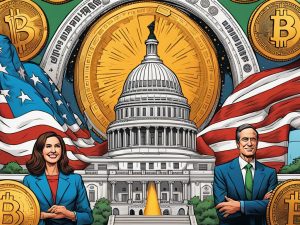DeFi Exchanges: A Concern for the CFTC
The Commodity Futures Trading Commission (CFTC) has expressed worries about the increasing influence of decentralized finance (DeFi) exchanges. During a conference, CFTC enforcement director Ian McGinley emphasized the agency’s commitment to safeguarding regulated markets and customers.
McGinley stated that unregulated DeFi exchanges pose an obvious threat to the CFTC-regulated markets and the protection of customers. The agency believes that these exchanges need scrutiny to ensure compliance with financial regulations.
Enforcement Actions Against DeFi Protocols
The recent actions taken by the CFTC against Opyn, ZeroEx, and Deridex highlight its determination to enforce existing regulations within the DeFi space. According to McGinley, these protocols were charged for engaging in activities that should have been registered with the CFTC.
As a result, the protocols agreed to pay civil monetary penalties. The CFTC settled with Polymarket for $1.4 million and secured a victory against Ooki DAO in June.
Coinbase CEO’s Proposal to Challenge the CFTC
Coinbase CEO Brian Armstrong has expressed reservations about the charges brought by the CFTC against DeFi protocols. He urged these protocols not to settle but instead to challenge the cases in court in order to establish a legal precedent.
Armstrong argued that these protocols are not financial service businesses and questioned whether they fall under the jurisdiction of the Commodity Exchange Act. He hopes that taking these cases to court will prevent pushing the industry offshore.
Hot Take: Coinbase CEO Challenges CFTC’s Actions
Coinbase CEO Brian Armstrong disagrees with the recent actions taken by the CFTC against DeFi protocols. He believes that these protocols should challenge the charges in court to establish a legal precedent and prevent pushing the industry offshore. Armstrong argues that these protocols are not financial service businesses and questions the applicability of the Commodity Exchange Act to them. The outcome of these cases could have significant implications for the future of decentralized finance.





 By
By
 By
By

 By
By

 By
By